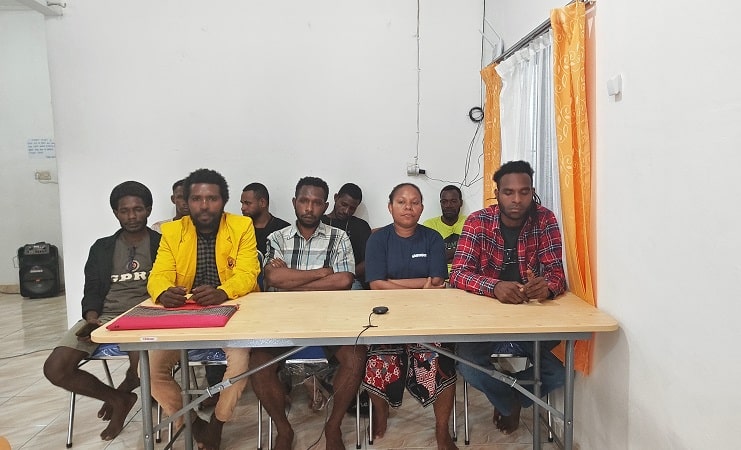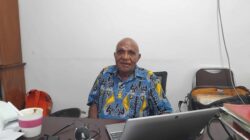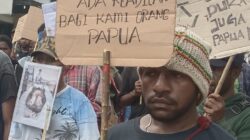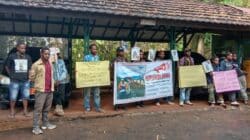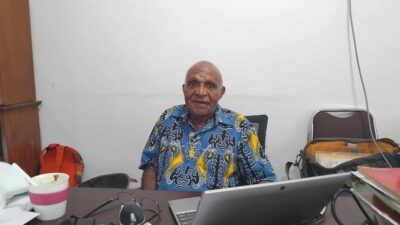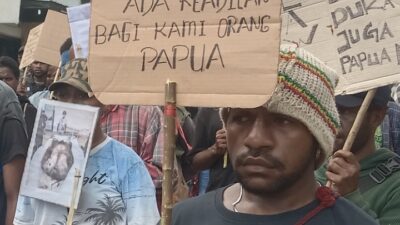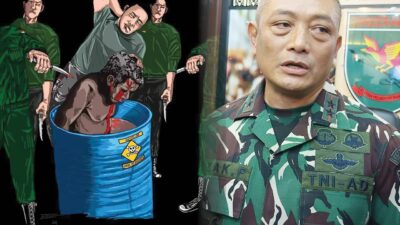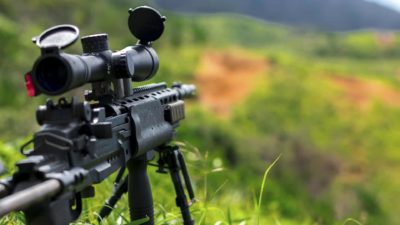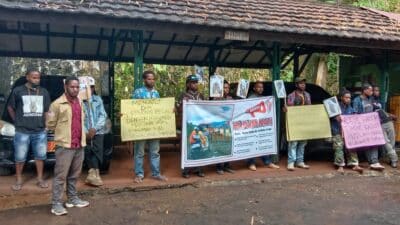Jayapura, Jubi – Following the rejection of the Awyu Indigenous People’s lawsuit against the Papua Province Investment and One-Stop Integrated Services Office (DPMPTSP) by the State Administrative Court in Jayapura, various environmental and community groups, as well as students, expressed their disappointment.
The lawsuit pertained to the environmental feasibility permit issued by DPMPTSP for the PT Indo Asiana Lestari (PT IAL) oil palm plantation, covering a 36,096.4-hectare development plan in Mandobo District and Fofi District, Boven Digoel Regency, South Papua Province.
Organizations including the Alliance of Students, Youth for the Rights of Indigenous Peoples and Forests of Papua (Ampera Mada Papua), Dehaling of Cenderawasih University, Papua Nature Care Student Community (Kompa), and representatives of Boven Digoel students in Jayapura are disappointed and have pledged their support for the Awyu tribe’s appeal efforts.
Jhon F Tebai, head of the Democracy, Human Rights, and Environment Student Activity Unit (Dehaling) of Cenderawasih University questioned the basis for the decision, as the evidence and facts presented during the trial did not seem to have been adequately considered. He suggested a lack of support for the protection of indigenous peoples, especially the Awyu tribe, from the government and the judiciary.
Philipus Chambu, head of the Papuan Nature Care Student Community (Kompa), highlighted that the trial lasted seven months, with extensive evidence and expert witnesses presented. Despite this, the panel of judges did not seem to acknowledge the rights of indigenous peoples as clearly outlined in the Special Autonomy Law.
Aloysius Teurop, a student representative from Boven Digoel, described the exhausting nature of the Woro clan’s struggle during the trial. The judges’ decision, which cited AMDAL (Environmental Impact Assessment) considerations with the support of the Indigenous Peoples Organization (LMA), was considered incorrect, as it was believed that only the head of the local clan had the right to release land or customary rights.
Anasthasya Manong, spokesperson for the Alliance of Students, Youth for Indigenous Peoples’ Rights and Forests of Papua (Ampera Mada Papua), called on the Supreme Court, the Papua Representative Judicial Commission, and members of the Papuan Parliament to address the matter and ensure that the Awyu tribe’s struggle does not go in vain. She also expressed support for the appeal to the Makassar Administrative Court and requested an investigation into the judges involved in the case.


